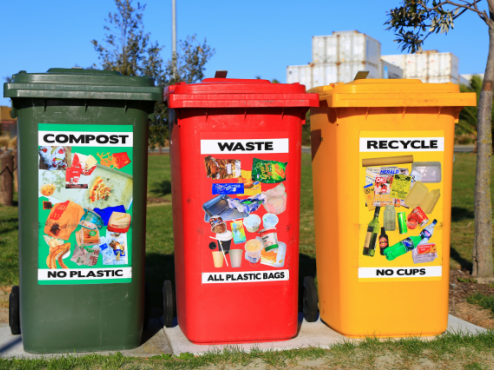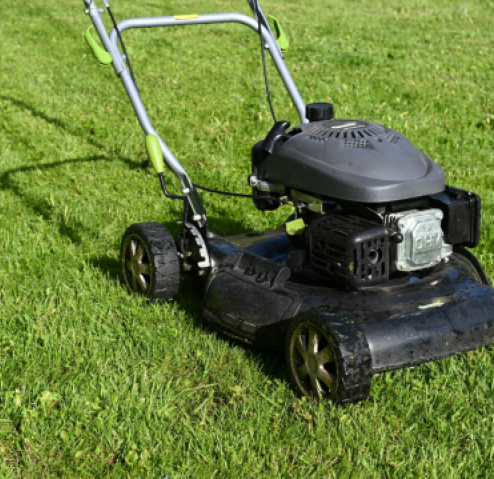Everything You Need to Know About Recycling Old Lawn Mowers
Lawn mowers are essential for keeping lawns well-maintained, but as with any equipment, they eventually wear out or become outdated. Disposing of an old lawn mower may seem straightforward, yet simply throwing it away isn’t environmentally friendly. Recycling a lawn mower helps conserve resources, prevent pollution, and minimize landfill waste. This guide will walk you through the key steps, benefits, and best practices for recycling an old lawn mower, ensuring it’s done safely and responsibly.
1. Why Recycling Your Old Lawn Mower is Important
Recycling old lawn mowers offers significant environmental and economic benefits. These machines are typically made with valuable materials such as metal and plastic, which can be reclaimed and reused. Additionally, lawn mowers often contain fluids and other components that can harm the environment if not disposed of properly. Key reasons to recycle include:
- Resource Conservation: Reclaiming metals and other materials reduces the demand for raw resources.
- Pollution Prevention: Recycling helps prevent potentially hazardous fluids from contaminating soil and water.
- Economic Impact: Recycled materials can be repurposed, which supports various industries and helps keep costs lower.
2. Preparing Your Lawn Mower for Recycling
Before recycling, it’s essential to prepare your lawn mower to ensure it’s safe for recycling facilities to process.
a. Drain All Fluids
Most lawn mowers contain gasoline and oil, both of which need to be removed and disposed of properly.
- Gasoline: Remove any remaining gas by carefully draining it into a suitable container, which can be reused in other equipment or disposed of at a hazardous waste facility.
- Oil: Drain the oil by positioning the mower on a flat surface and removing the oil cap. Collect the oil in a container for recycling at an auto parts store or designated waste disposal center.
b. Remove Batteries and Spark Plugs
If your lawn mower has a rechargeable battery, remove it and recycle it separately. Batteries contain chemicals and metals that can be harmful if improperly discarded. Spark plugs should also be removed for recycling or disposal at an automotive recycling facility.
c. Clean the Mower
Cleaning off dirt, grass, and other debris can make the recycling process easier. By removing any organic material, you help ensure the mower can be safely recycled and prevent contamination at recycling facilities.
3. Options for Recycling Your Lawn Mower
Depending on your area and the condition of your mower, there are several recycling options to consider:
a. Scrap Metal Recycling Centers
Lawn mowers are primarily made from metal, making them ideal for recycling at scrap yards or metal recycling centers. Most centers will accept properly prepared mowers and may even pay you a small sum for the scrap metal.
b. Municipal Waste Management Facilities
Some local waste management departments offer special collection days or designated facilities for larger items, such as lawn mowers. Check with your local waste management facility to see if they accept lawn mowers and their requirements for drop-off.
c. Retailer Trade-In or Recycling Programs
Certain retailers offer trade-in or recycling programs for lawn equipment. When purchasing a new mower, inquire about recycling services for your old machine. Retailers like Lowe’s and Home Depot sometimes participate in recycling programs for garden equipment and may accept your old mower.
d. Donation or Part Sales
If parts of your lawn mower are still functional, you may want to consider selling or donating them. Wheels, handles, motors, and other parts can be valuable to people repairing mowers or completing DIY projects. Websites like Craigslist and eBay are good platforms to find interested buyers.
e. Upcycle or Repurpose Parts
For DIY enthusiasts, lawn mower parts can be upcycled into other projects. For example, the motor could be used in small machines, and metal components can be repurposed for various craft projects. Repurposing extends the life of materials and helps keep waste out of landfills.
4. Proper Disposal of Hazardous Materials
Lawn mowers contain various materials that can be harmful to the environment. Here’s how to responsibly dispose of each type:
- Gasoline: Never pour gasoline down a drain or onto the ground. Hazardous waste centers, some auto repair shops, and waste management facilities may accept used gasoline.
- Oil: Used oil can contaminate large amounts of water, so it should be recycled at automotive shops or designated recycling centers.
- Batteries: Rechargeable batteries contain chemicals and metals that require special recycling. Many electronics stores or waste facilities accept batteries for recycling.
- Spark Plugs: Spark plugs contain metals that are recyclable, so it’s best to take them to an automotive recycling center or metal recycler.
5. Benefits of Recycling Lawn Mowers
Recycling your old lawn mower has a positive impact on the environment and community in several ways:
- Resource Conservation: Recycling reclaims metals and plastics, which reduces the need for new resources.
- Energy Efficiency: Recycling metal uses less energy compared to manufacturing new metal.
- Landfill Reduction: Lawn mowers take up a lot of space in landfills; recycling keeps them out of waste sites.
- Reduced Pollution: Disposing of hazardous materials properly prevents contamination and protects ecosystems.
6. Recycling Different Types of Lawn Mowers
The recycling approach can vary based on the type of lawn mower you have:
a. Gas-Powered Lawn Mowers
For gas-powered mowers, the first steps are to drain the fuel and oil, then remove the spark plugs. This type of mower has more preparation steps because of the hazardous fluids.
b. Electric and Battery-Powered Lawn Mowers
Electric mowers don’t contain gasoline or oil, making them easier to recycle. However, battery disposal is essential, as batteries require specific recycling to handle their chemical contents.
c. Manual or Reel Mowers
Manual mowers are the simplest to recycle as they don’t contain any fluids or batteries. You can often take them directly to a scrap metal recycler.
7. Mistakes to Avoid When Recycling a Lawn Mower
Recycling a lawn mower properly involves avoiding certain common mistakes:
- Skipping the Draining Process: Leaving gas or oil in the mower is dangerous and may cause recycling centers to reject your mower.
- Improperly Disposing of Batteries: Always recycle batteries at designated facilities.
- Assuming All Scrap Yards Accept Mowers: Confirm in advance if your recycling facility accepts lawn mowers, as some may have restrictions.
- Ignoring Local Resources: Many cities offer convenient recycling options for lawn equipment—researching local programs can save time and hassle.
8. Tips for an Easier Recycling Experience
- Look Up Local Laws and Recycling Programs: Different areas have specific regulations for recycling lawn equipment. Contact your waste management facility for guidelines.
- Consider Renting or Eco-Friendly Models: If you plan to replace your mower, eco-friendly options can reduce future waste.
- Inquire About Pick-Up Services: Some recycling programs or organizations provide pick-up services for large items, making the process easier.
Conclusion
Recycling an old lawn mower takes a little extra effort but yields substantial environmental benefits. By responsibly draining fluids, removing hazardous parts, and choosing an appropriate disposal method, you help conserve resources, prevent pollution, and support a more sustainable future. Recycling keeps heavy-duty equipment like lawn mowers out of landfills, ensuring that valuable materials are reused instead of wasted.
The next time you’re faced with an old mower, consider these recycling options to do your part in keeping the environment cleaner and greener. With many avenues for repurposing or recycling lawn mowers, you’re sure to find an approach that fits your needs and contributes to the well-being of the planet.
Related Posts
 Help Wanted for End of Year Thrift Store Selling
Help Wanted for End of Year Thrift Store Selling
We are seeking a skilled estate sale team or an individual with extensive experience in conducting successful public sales. Our business has accumulated a substantial inventory, and we are aiming to efficiently clear out this stock before the end of the current year. If you or your organization possess the expertise and resources necessary to manage such a project effectively, we would greatly appreciate the opportunity to discuss this potential collaboration with you. Please do not hesitate to express your interest in this prospect.
Read More Estate Cleanouts and Junk Hauling Services for Seniors
Estate Cleanouts and Junk Hauling Services for Seniors
Green junk hauling, downsizing, and estate cleanouts from Gone For Good are available throughout Northern Colorado. Unwanted belongings get a second chance with GFG, whether they go to our thrift stores, charity or get recycled- we can as much as we can out of the landfill.
Read More How to Recycle and Why You Should Do It in Aurora, Colorado
How to Recycle and Why You Should Do It in Aurora, Colorado
Recycling is more than just a buzzword; it’s a meaningful way to protect our environment and conserve precious resources.
Read More Everything You Need to Know About Recycling Old Lawn Mowers
Everything You Need to Know About Recycling Old Lawn Mowers
Lawn mowers are essential for keeping lawns well-maintained, but as with any equipment, they eventually wear out or become outdated.
Read More